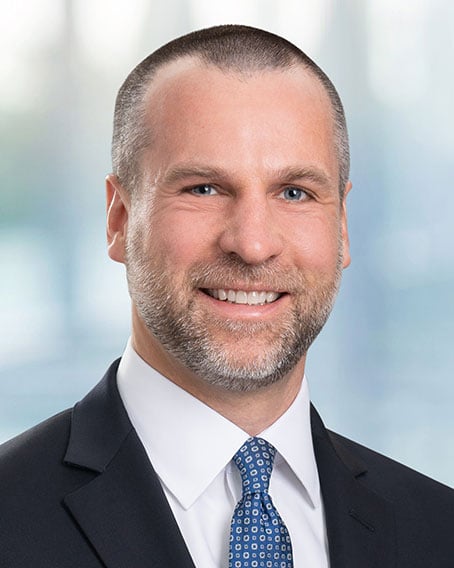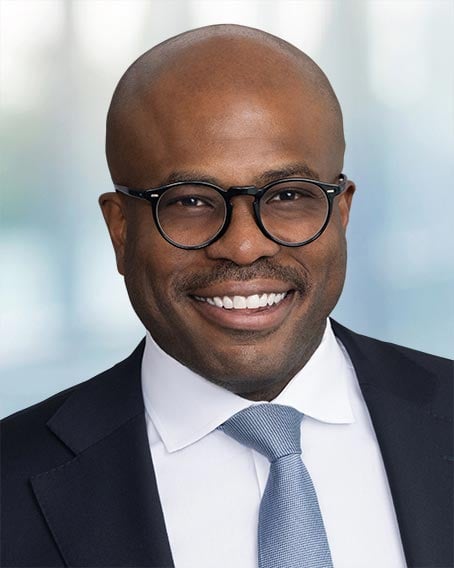Key Takeaways
- The SEC’s Division of Enforcement intends to remain a “cop on the beat,” and will refocus on traditional core enforcement areas, such as insider trading, accounting and disclosure fraud, market manipulation, and breaches of fiduciary duties by investment advisers.
- The SEC will prioritize matters that involve harm to retail investors and dangerous foreign actors, with a renewed emphasis on pursuing charges against individuals engaged in misconduct.
- SEC enforcement leadership supports more transparency during the pre-charge “Wells” process and pledged to meet with defense counsel at least once (if requested) before charges are instituted.
- Registered entities can expect the Division of Enforcement to be less focused on exam deficiencies that lack any indication of fraud or harm to investors.
- The Division of Enforcement has replaced its “Crypto Assets and Cyber” unit with a “Cyber and Emerging Technologies” unit, which will have a particular focus on the misuse of technology and/or terminology (e.g., “artificial intelligence”) to generate excitement around investment products or otherwise commit fraud.
Summary and Highlights
At the SEC Speaks 2025 conference, held in Washington, D.C., from May 19-20, 2025, senior Securities and Exchange Commission (“SEC”) officials shared their observations on what the legal and business community can expect from the SEC’s Division of Enforcement (“Division”) in the years to come. Over the course of two panels1 dedicated to the Division, panelists discussed key enforcement trends and priorities, including the Division’s renewed emphasis on individual liability, harm to retail investors, and dangerous foreign actors. The panelists also affirmed the Division’s continued commitment to traditional enforcement priorities and cautioned the defense bar and the broader public to be skeptical of contrary dire predictions. In addition, the panelists explained some recent reorganization efforts and how these changes will facilitate the Division’s work going forward. And the panelists provided the defense bar with guidance regarding effective legal advocacy, cooperation, and recommendations for dealing with the Division’s staff during their investigations.
I. Enforcement Trends and Priorities
Acting Director of the Division of Enforcement Sam Waldon and other panelists declared that the dire predictions of changes to the Division’s work were “overstated.” Waldon and other panelists instead affirmed the Division’s intention to focus on traditional core areas of enforcement, with several particular areas of focus.
A. Harm to Retail Investors
Panelists shared that the Division plans to renew and increase its focus on harm to retail investors, including seniors. On this priority, Deputy Director Nekia Hackworth Jones highlighted the SEC’s settlement of charges it filed against investment advisor Transamerica Retirement Advisors for failing to disclose certain conflicts of interest.2 In addition, Deputy Director Jason Burt similarly noted that the Division’s specialized units would be particularly focused on protecting retail investors. This includes the Division’s newly created “Cyber and Emerging Technologies” unit, which will focus on (i) the misuse of technology to commit fraud, (ii) false statements touting the use of emerging technologies (such as artificial intelligence) to generate investment interest, and (iii) hacking to commit securities fraud, such as insider trading. Burt also noted the unit would focus on the use of social media and the dark web to hack or otherwise take over retail brokerage accounts.
Panelists representing several other specialized units similarly affirmed their increased focus on retail investors. For instance, Complex Financial Instruments Chief Eric Werner noted that over half of his unit’s docket involves retail customers and that billions of dollars of complex financial products are offered and sold to retail investors every year. Similarly, Public Finance Unit Deputy Chief Rebecca Olsen said that her unit was increasingly focused on frauds by municipal bond issuers that harm retail investors.
We note that in the past, when the Division has emphasized a focus on “retail investors,” that focus has at times been accomplished through how the Division frames the enforcement action. For example, in a hypothetical case alleging that a private equity firm charged improper fees and expenses, the SEC could choose to emphasize the alleged breach of fiduciary duty by a sophisticated corporate actor or emphasize the alleged harm to pension fund investors.
B. Individual Liability
The Division also plans to renew and increase its focus on individual liability, an evergreen priority for the Division. The panelists’ repeated discussion of this priority suggests a skepticism of corporate penalties for public companies at least as a means of deterring securities law violations, which Associate Director Jaime Marinaro highlighted during her remarks.
Hackworth Jones emphasized this increased focus by highlighting the SEC’s October 2024 announcement that it had settled charges of accounting fraud against Robert Turner, the former Executive Chairman and Principal Executive Officer of New York-based telecommunications company Pareteum.3 Hackworth Jones highlighted that Turner, who the SEC alleged was aware of signs that the company’s revenue was improperly recognized, agreed to pay a $75,000 penalty and reimburse Pareteum certain bonus payments he received. Hackworth Jones indicated that, when evaluating individual liability, the Division would focus on (i) culpability, (ii) the severity of the misconduct, and (iii) the degree of tolerance of illegal activity shown.
C. Dangerous Foreign Actors
Several panelists highlighted the Division’s increased attention to dangerous foreign actors—in particular those who perpetrate investment scams against individuals. For instance, Associate Director Pei Chung highlighted (i) an alert the SEC published warning investors to beware of “fraudsters impersonating investment professionals”4 and (ii) the SEC’s charges against three foreign persons who allegedly stole more than $2.9 million by impersonating financial professionals at well-known financial institutions.5 Market Abuse Unit Chief Joseph Sansone similarly voiced that dangerous foreign actors were a priority for his unit.
II. Organizational Changes
A. The Division Has Restructured in Several Ways
Several panelists, including Acting Director Waldon, described certain organizational changes in the Division intended to improve efficiency, management, and oversight. Specifically, the Division now has three primary regions—west, northeast, and southeast—with each region reporting to one of the three deputy directors. Previously, the leaders of each regional office reported to its own regional director, who in turn reported to the Division’s director. A fourth deputy director also now supervises the Division’s specialized units.
B. The Commission Must Now Directly Approve Formal Orders
Hackworth Jones described how the Commission has eliminated its previous delegation of authority that permitted leadership in the Division—rather than the Commission itself—to issue formal orders of investigation.6 Former Commissioner Daniel Gallagher suggested that returning formal order authorization to the Commission will increase the Division’s effectiveness, as it will require the Commission to be engaged throughout every step of the investigative process.
We note that this change ultimately may not represent a significant shift in how the Division conducts its inquiries as the staff may opt to conduct informal inquiries (i.e., seeking voluntary production of materials and testimony) without the need to issue subpoenas or seek Commission approval. Moreover, the requirement to obtain Commission authorization for a formal order of investigation has in the past resided with the Commission and did not appear to have slowed down the inquiry process. The real question that remains to be seen is whether the Commission will exercise this authority to limit or refocus the nature of inquiries.
III. Additional Guidance – An Increased Focus on Transparency
Several panelists asserted that the Division was committed to the values of due process and transparency, particularly during the pre-charge Wells process. For instance, Deputy Director Antonia Apps committed to—at minimum—granting any party who receives a Wells notice (i.e., a notice that the Division’s staff intends to recommend an enforcement action) a meeting with Division leadership after the staff has completed its investigation. Apps stressed that a more open and transparent process involving the Division staff sharing legal theories and evidence (when feasible) with defense counsel can be critical to ensuring that the Division fully understands and considers a party’s position. Still, Apps cautioned that individuals and entities under investigation should not expect multiple meetings as a matter of course and that the Division would continue to use its discretion when deciding whether to grant certain meeting requests and/or share evidence.
Finally, Associate Director Jaime Marinaro echoed this commitment to transparency. She noted previous remarks by then-Commissioner (and now Chair) Paul Atkins arguing that prospective defendants should have greater access to their investigative file and that this increased access promotes due process and the administration of justice.
This is a welcome change for those involved in Division inquiries, as over the past several years the staff has been increasingly reluctant to share evidence during the Wells process and significantly limited the ability of respondents to get meetings with senior members of the Division, which, in appropriate cases, have been an effective means to obtain more equitable results.
- Panel participants focusing on the Division included Sam Waldon (Acting Director), Silvestre Fontes (Enforcement Liaison), Nekia Hackworth Jones (Deputy Director), Jason Burt (Deputy Director), Kate Zoladz (Deputy Director), Antonia Apps (Deputy Director), Nick Grippo (Chief Litigation Counsel), Pei Chung (Associate Director), Laura D’Allaird (Chief, Cyber & Emerging Technologies Unit), Jaime Marinaro (Associate Director), Joseph Sansone (Chief, Market Abuse Unit), Corey Schuster (Chief, Asset Management Unit), Rebecca Olsen (Deputy Chief, Public Finance Abuse Unit), Eric Werner (Chief, Complex Financial Instruments Unit), Hon. Daniel M. Gallagher (Former Commissioner), and Hon. Elad L. Roisman (Former Commissioner).
- SEC Charges Investment Adviser for Failing to Disclose Conflicts of Interest Created by Paying Incentive Compensation, Orders It to Pay Affected Clients, U.S. Sec. & Exch. Comm’n (Jan. 17, 2025), https://www.sec.gov/enforcement-litigation/administrative-proceedings/ia-6826-s.
- SEC Charges Former Pareteum Executive Chairman with Accounting Fraud, U.S. Sec. & Exch. Comm’n (Oct. 11, 2024), https://www.sec.gov/enforcement-litigation/administrative-proceedings/33-11317-s.
- Beware of Fraudsters Impersonating Investment Professionals and Firms – Investor Alert, Investor.gov: U.S. Sec. & Exch. Comm’n (Dec. 11, 2024), https://www.investor.gov/introduction-investing/general-resources/news-alerts/alerts-bulletins/investor-alerts/beware-fraudsters-impersonating-investment-professionals-and-firms-investor-alert.
- Chibuzo Augustine Onyeachonam, Stanley Chidubem Asiegbu, and Chukwuebuka Martin Newke-Eze, U.S. Sec. & Exch. Comm’n (Dec. 12, 2024), https://www.sec.gov/enforcement-litigation/litigation-releases/lr-26194.
- 90 Fed. Reg. 12105-06 (Mar. 14, 2025) (to be codified at 17 C.F.R. pt. 200).
Stay Up To Date with Ropes & Gray
Ropes & Gray attorneys provide timely analysis on legal developments, court decisions and changes in legislation and regulations.
Stay in the loop with all things Ropes & Gray, and find out more about our people, culture, initiatives and everything that’s happening.
We regularly notify our clients and contacts of significant legal developments, news, webinars and teleconferences that affect their industries.



